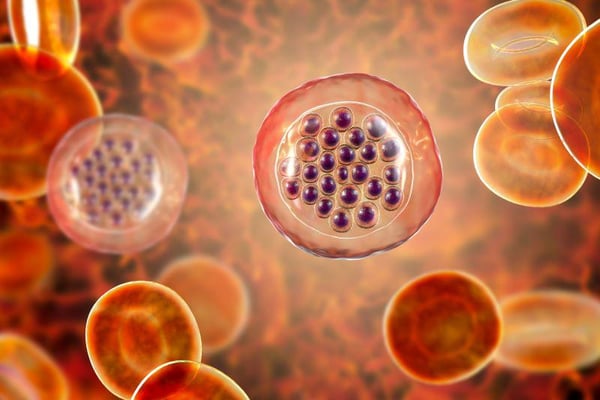New Malaria Treatment Gets First Approval for Use in Children

MONDAY, March 14, 2022 (HealthDay News) -- A new drug that can cure a certain type of malaria was approved in Australia Monday for children and teens.
The approval was announced on Monday by the nonprofit Medicines for Malaria Venture (MMV), which helped develop the drug with GlaxoSmithKline. It is for a single dose of tafenoquine (Kozenis) for use in combination with the traditional malaria drug chloroquine. This is the first time the drug has been authorized for use in children and will likely lead to more such approvals worldwide.
Tafenoquine can cure malaria caused by Plasmodium vivax, which is most common in South and Southeast Asia, South America, and the Horn of Africa. P. vivax causes up to 5 million malaria infections every year. Children aged 2 to 6 years are four times more likely than adults to contract it, MMV said.
"We are proud to have worked with GSK to develop this child-friendly treatment and are thrilled by today's announcement. P. vivax malaria is particularly dangerous for young children for whom repeated relapses can lead to cumulative severe anemia and, in some cases, be fatal," David Reddy, M.D., CEO of MMV, said in a statement. "Today, we have a tool to put a stop to the relentless relapse both for adults and children -- we are one step closer to defeating this disease."
The drug will be submitted for approval in nine countries, as well as to the World Health Organization, George Jagoe, an executive vice president with MMV, told The New York Times. In July 2018, the U.S. Food and Drug Administration approved 300 mg of tafenoquine for P. vivax malaria in patients 16 years and older, and Australia, Brazil, Thailand, and Peru followed suit with similar approvals.
The new drug for children is a single 50-mg tablet dispersed in water, which is much easier to take than the seven- or 14-day course of pills for adults. About 62 percent of the children studied experienced some side effects. While none of the side effects were severe, the treatment caused vomiting in about one in five children. At four months, the treatment was 95 percent effective at preventing recurrence.
In October, the World Health Organization backed the first malaria vaccine, also made by GlaxoSmithKline, against P. falciparum.
Related Posts
Supreme Court Curbs EPA’s Authority Over Power Plant Emissions
THURSDAY, June 30, 2022 (HealthDay News) – In a ruling that will curb efforts to...
Residents Trained During First Wave of Pandemic Experienced Less PTSD
FRIDAY, Aug. 25, 2023 (HealthDay News) -- First-year residents training during...
El vapeo puede afectar a la respiración de los jóvenes
MIÉRCOLES, 16 de agosto de 2023 (HealthDay News) -- Cuando los adolescentes...
U.S. Parents Face Big Disparities in Access to Autism Care Services
MONDAY, Jan. 30, 2023 (HealthDay News) -- Autism services are harder to find in...
